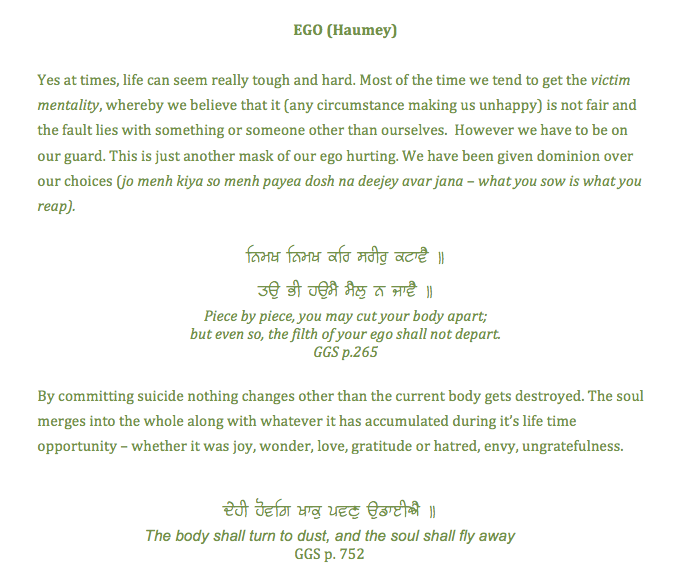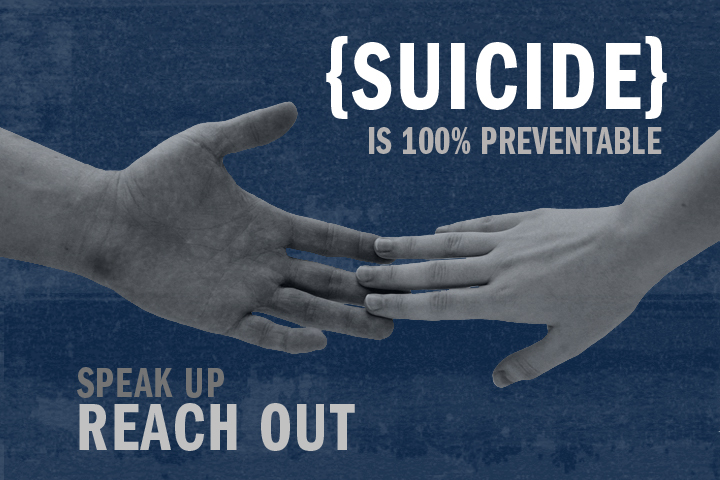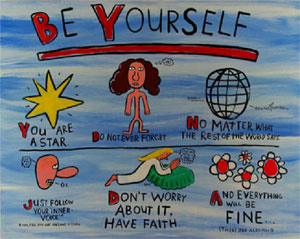Another taboo subject that most people avoid discussing is suicide. It is horrific but yet it is something that is very real and must be brought to the attention of young adolescents. Sometimes all it takes is to understand the reason behind feelings that might be overwhelming to get through the difficult time. Contrary to myth, talking about suicide CANNOT plant the idea in someone’s head! It actually can open up communication about a topic that is often kept a secret — and secrets that are exposed to the rational light of day often become less powerful. Suicide is the second leading cause of death among young people after motor vehicle accidents. Yet people are often reluctant to discuss it. This is partly due to the stigma, guilt or shame that surrounds suicide. People are often uncomfortable discussing it. Unfortunately, this tradition of silence perpetuates harmful myths and attitudes. It can also prevent people from talking openly about the pain they feel or the help they need.
It takes immense courage to talk about suicide. Here is one such brave soul:
“I’ve been thinking recently of suicide. Not having suicidal thoughts myself, but thinking about the concept. I am 23 years old now; I was 20 at the time of my own struggle with suicidal thoughts. I have considered killing myself to end all the pain. That’s me being honest with you, to all of you. I have difficulty opening up about this kind of thing, especially when speaking in person. The idea of killing oneself is not a surprising or ‘weird’ thing. I get it. I get that we as people go through so many difficult things, which I won’t even begin to list because literally it can be anything. I’m writing this in recognition that suicide is something that many, if not all people consider; to say that I’m not afraid to talk about it. Talking about suicide is not something I would shy away if brought up.
I am not completely sure what triggered it. I didn’t delve into that. Also I don’t think I’d be comfortable sharing. I did not share my thoughts with anyone. I kept thinking that I would rather not get anyone involved. I didn’t seek counseling. Looking back, that made it so much harder for me. I didn’t think suicidal thoughts were an issue, which needed counseling. Rather, all the hardships in my life needed to stop/be dealt with. I don’t think I saw the cause or solution as within me. I didn’t think I’d be able to go to a counselor without someone finding out. Didn’t think it would help. Didn’t think I needed it. I realize now that it wouldn’t have been the case. I could have done it without anyone knowing (probably would have been even more helpful if I had told at least one person what I was going through, so they could help me find a counselor).
Instead I placed everything and devoted my everything to GuruJi and let them take me on a journey to heal me. Primarily what helped me was the Satsangat. The love and inspiration I received from the people (youth and adult) and the teachings and hope for something greater, which Gurbani continuously emphasized. Learning to love Gurbani helped me better learn to love others. I then learned that I had to better love myself in order to love others. And essentially I feel like GuruJi allowed that to happen through that divine shabad which he immersed into my life.
An important point to note is that those of us who have suicidal thoughts and verbalize to others (our loved ones or support people) are incredibly strong to actually open up about it to another soul. The amount of mental and emotional energy and power to bring forth such a personal issue is one, which cannot be minimized in the slightest. Those seeking to speak about their suicidal thoughts are laying out everything on the table. In addition, that seeking out of help is a sign that there is a light within them which is looking for some sort of reason, alternative, or hope of being able to continue living. I found my support and reasons to not kill myself.
Don’t go looking for warning signs in people you THINK would have suicidal thoughts. Allow your mind to be open to the reality that anyone in our life may be having suicidal thoughts; regardless of their social status, job title, religious community, amount of friends, popularity, grades, skills and talents, family life, and so many more factors, which again, I don’t think I am able to adequately list. Even those people who always seem to have a smile on their face, whose laughter is contagious… Even they may be that person which needs a loving person like you to keep them laughing and smiling.When someone brings up feelings of hopelessness for the future, It’s something to take seriously. When someone suddenly starts getting their affairs in order for a time when they are no longer physically present, It’s something to take seriously.When someone starts saying goodbyes to their loved ones,It’s something to take seriously. “
MS
Every person would like to believe that suicide is not relevant to them or their family or friends. Unfortunately, it’s all too relevant for all of us. It is a leading cause of death in adolescents and college-aged students. Even more disturbing are national surveys that tell us that 25% of high-school students admit to thinking about suicide, and 8.5% acknowledge actually making an attempt. The unfortunate truth is that  suicide can happen to ANY kid in ANY family at ANY time!
suicide can happen to ANY kid in ANY family at ANY time!
Adolescence is a time of dramatic change. The journey from child to adult can be complex and challenging. Young people often feel tremendous pressure to succeed at school, at home and in social groups. At the same time, they may lack the life experience that lets them know that difficult situations will not last forever. Mental health problems commonly associated with adults, such as depression, also affect young people. Any one of these factors, or a combination, may become such a source of pain that they seek relief in suicide.
SOME UNDERLYING CAUSES
 Most common triggers associated with suicidal acts:-
Most common triggers associated with suicidal acts:-
a) Interpersonal conflict or loss usually with parents or a romantic relationship;
b) Ongoing family conflict;
c) Physical or sexual abuse;
d) Impending legal or disciplinary matters
e) A family history of suicidal behaviour
f) Substance abuse
e) Psychiatric disorders - For example - Depression is the most common psychiatric disorder among youth who attempt or commit suicide.
Due to mental anxiety and or depression some emotional changes occur. For example:
- Feelings of sadness
- Irritability
- Frustration
- Loss of interest and pleasure
- Feelings of worthlessness
- Ongoing sense that life and future are bleak
- Frequent thoughts of death and suicide
how does gurbani guide us
 To remain in Hukum one cannot decide to take His or Her own Life.
To remain in Hukum one cannot decide to take His or Her own Life.
Being in Sangat of enlightened souls (sadh sangat) helps clear our minds over time. When it is difficult and nothing seems to be working ask for help. Sometimes chemical imbalances do not allow for clear thinking. God only gives us as much as we can handle, but sometimes it’s hard to remember how strong we really are. We are allowed to ask for help. God gives us that too … when we ask for it. Accept the help when it comes.
What can help if you are feeling suicidal…
The beginning of the way out is to let someone else in.
This is very hard to do because, if you feel so desperate that suicide seems to be the only solution, you are likely very frightened and ashamed. There is no reason to be ashamed of feeling suicidal and seeking help. You are not alone; many people have felt suicidal when facing difficult times and have survived, usually returning to quite normal lives. Take the risk of telling your feelings to someone you know and trust: a relative, friend, social service worker, or a sangat member.
There are many ways to cope and get support…
- call a crisis telephone support line,
- draw on the support of family and friends,
- talk to your family doctor; he/she can refer you to services in the community, including counselling and hospital services,
- set up frequent appointments with a mental health professional, and request telephone support between appointments,
- get involved in self-help groups (school and community)
- talk every day to at least one person you trust about how you are feeling,
- think about seeking help from the emergency department of a local hospital,
- talk to someone who has ‘been there” about what it was like and how he/she coped,
- avoid making major decisions which you may later regret.
- Reading Gurbani Vichar on POWER OF THOUGHTS can be very helpful.
The sense of desperation and the wish to die will not go away at once, but it will pass. Regaining your will to live is more important than anything else at the moment.
If you or someone you know needs help…
 If you or someone you know is feeling suicidal and you need more information consider contacting Kids Help Phone counsellors. It’s free, it’s anonymous and confidential and it’s available 24/7, 365 days a year!
If you or someone you know is feeling suicidal and you need more information consider contacting Kids Help Phone counsellors. It’s free, it’s anonymous and confidential and it’s available 24/7, 365 days a year!
or http://www.teenhealthandwellness.com/static/hotlines
You can also call the toll free number 1 800 668 6868
Reach out!!!
With lots and lots of Nanak love
Dhan Guru Nanak
RA










Dhan Guru Nanak,
This topic is so important especially if we have been affected by suicide in our circle or may see someone who may be struggling.
I found this really useful talk written by Bhai Vir Singh Ji, read by Bhai Paramjit Singh from this website.
https://www.bhaivirsinghjiandprofessorpuransinghjiaudio.com
It gives a perspective from Gurbani.
Talk is called Aatamghat deh awgun. It is in the audio files.
https://bit.ly/2FYeGNH
Sukhi Kaur
Dear Sukhi - these are true gems!
Thank you so so much for adding them here to give a more enriched perspective on this deeply disturbing topic.
Dhan Guru Nanak